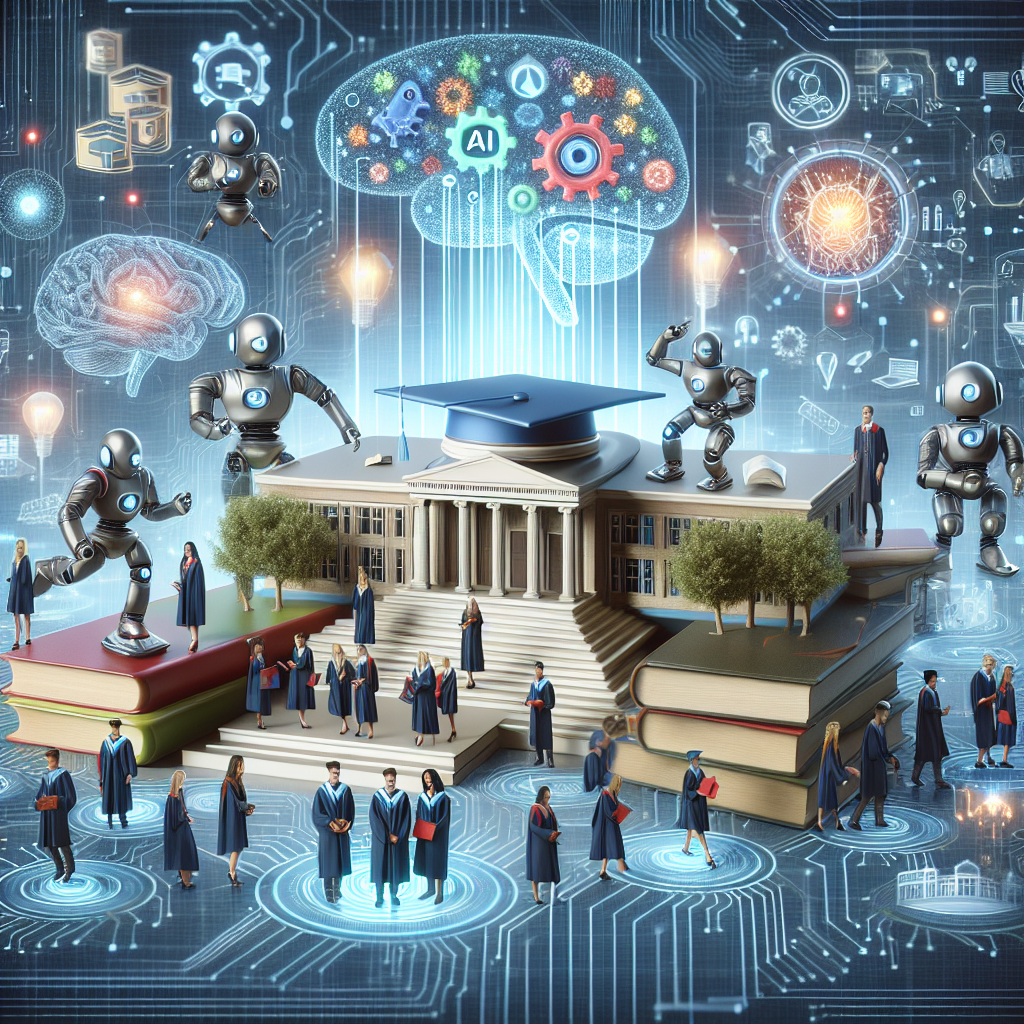Artificial Intelligence (AI) has rapidly transformed various industries, and the education sector is no exception. With the advancement of technology, AI is revolutionizing the way students learn, teachers teach, and educational institutions operate. From personalized learning experiences to improved administrative processes, AI is reshaping the future of education in unprecedented ways.
One of the key ways AI is revolutionizing the education sector is through personalized learning experiences. Traditional education systems often follow a one-size-fits-all approach, where all students are taught the same material at the same pace. However, AI-powered learning platforms can analyze each student’s learning style, preferences, and strengths to create personalized learning plans. These platforms can provide students with interactive content, adaptive assessments, and real-time feedback to help them learn at their own pace and in a way that suits their individual needs.
AI is also helping teachers enhance their teaching methods and improve student outcomes. By analyzing vast amounts of data, AI can identify patterns in student performance, predict learning gaps, and recommend personalized interventions. Teachers can use this information to tailor their teaching strategies, provide targeted support to struggling students, and challenge high-achieving students. AI tools such as intelligent tutoring systems, virtual reality simulations, and chatbots can also help teachers deliver engaging and interactive lessons that cater to different learning styles.
Furthermore, AI is streamlining administrative processes in educational institutions, saving time and resources for teachers and administrators. AI-powered systems can automate routine tasks such as grading, scheduling, and student enrollment, allowing educators to focus on more meaningful activities. These systems can also analyze data to optimize resource allocation, improve operational efficiency, and enhance decision-making processes. By leveraging AI, educational institutions can streamline their operations, reduce costs, and provide a better learning experience for students.
In addition to personalized learning, improved teaching methods, and streamlined administrative processes, AI is also revolutionizing the education sector through innovative applications such as language translation, plagiarism detection, and student engagement. AI-powered language translation tools can help students overcome language barriers and access educational content in their native language. Plagiarism detection software can ensure academic integrity and help educators identify and address instances of plagiarism. AI-driven student engagement platforms can enhance collaboration, communication, and participation among students, creating a more interactive and engaging learning environment.
Despite the numerous benefits of AI in the education sector, there are also challenges and concerns that need to be addressed. One of the main concerns is the potential impact of AI on jobs in the education industry. As AI technology continues to evolve, there is a fear that automated systems and intelligent machines could replace human teachers and administrators. While AI can automate certain tasks and enhance efficiency, it is unlikely to completely replace the human touch and personalized support that educators provide. Instead, AI should be seen as a tool to augment human capabilities, support teachers in their work, and improve student outcomes.
Another challenge is the issue of data privacy and security in the use of AI-powered educational tools. As AI systems collect and analyze vast amounts of student data, there is a risk of data breaches, misuse of personal information, and violations of privacy rights. Educational institutions must implement robust data protection measures, comply with data privacy regulations, and ensure transparent and ethical use of AI technology. Students, parents, and educators should also be informed about the data collection practices of AI systems and have control over their personal information.
Despite these challenges, the potential of AI to revolutionize the education sector is vast. By leveraging AI technology, educational institutions can enhance the learning experience, improve student outcomes, and prepare students for the future workforce. AI can provide personalized learning experiences, support teachers in their work, streamline administrative processes, and foster innovation in education. As AI continues to evolve, it is essential for educators, policymakers, and stakeholders to collaborate, address challenges, and harness the power of AI to transform education for the better.
FAQs:
Q: How is AI used in personalized learning?
A: AI-powered learning platforms analyze student data to create personalized learning plans based on individual learning styles, preferences, and strengths. These platforms provide interactive content, adaptive assessments, and real-time feedback to help students learn at their own pace.
Q: What are some examples of AI applications in education?
A: Some examples of AI applications in education include intelligent tutoring systems, virtual reality simulations, chatbots, language translation tools, plagiarism detection software, and student engagement platforms.
Q: What are the benefits of AI in the education sector?
A: The benefits of AI in the education sector include personalized learning experiences, improved teaching methods, streamlined administrative processes, innovative applications, enhanced student outcomes, and preparation for the future workforce.
Q: What are the challenges of AI in education?
A: Some challenges of AI in education include the potential impact on jobs, data privacy and security concerns, ethical use of AI technology, and the need for collaboration and transparency among educators, policymakers, and stakeholders.

